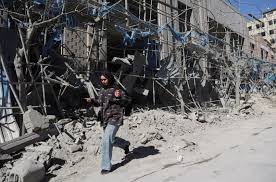Nigeria is recording a modest drop in Lassa fever infections, but the country continues to grapple with a dangerously high death rate from the viral disease, raising fresh concerns among public health officials. According to the latest situation report by the Nigeria Centre for Disease Control and Prevention (NCDC), 11 new confirmed cases of Lassa fever were reported in week 37 of 2025, slightly lower than the 13 recorded the previous week. The new cases were confirmed in Ondo, Bauchi, Kogi, and Anambra States, areas that remain hotspots for the disease.
So far this year, Nigeria has documented 895 confirmed cases of Lassa fever and 166 associated deaths spread across 21 states and 106 Local Government Areas. The current case fatality rate of 18.5% is significantly higher than the 16.9% recorded during the same reporting period in 2024, underscoring the persistent lethality of the virus despite improvements in surveillance and detection. Health experts note that while the overall number of suspected and confirmed cases appears lower compared to the previous year, the impact of the virus remains severe, particularly in rural and underserved communities.
Data from the NCDC highlights that five states Ondo, Bauchi, Edo, Taraba, and Ebonyi, account for a staggering 90% of all confirmed cases. Young adults between the ages of 21 and 30 are the most affected demographic, pointing to gaps in community-level awareness, prevention practices, and healthcare access among the working-age population.
Public health officials have repeatedly warned that the high fatality rate is largely driven by late presentation of patients at treatment centres, weak health-seeking behaviour, and inadequate environmental sanitation that allows rodents the primary carriers of the virus, to thrive in residential areas. Lassa fever, an acute viral haemorrhagic illness, spreads to humans through contact with food or household items contaminated by rodent urine or faeces, and in some cases, through person-to-person transmission.
To curb the spread and reduce deaths, the NCDC, in collaboration with international partners and local health authorities, has intensified its response activities. These include the deployment of rapid response teams to affected states, training of healthcare workers on case management, and scaling up public awareness campaigns on preventive measures. The agency has also strengthened surveillance systems to detect and respond swiftly to emerging cases.
Despite these interventions, experts emphasize that sustained community action is vital. Authorities are urging Nigerians to maintain strict hygiene practices, ensure food storage is rodent-proof, and promptly seek medical attention if symptoms such as fever, headache, muscle pain, or unexplained bleeding occur. They warn that self-medication and delays in reporting to health facilities significantly increase the risk of death.
The recurring outbreaks of Lassa fever underscore the urgent need for a long-term national strategy that not only strengthens health systems but also addresses the environmental and socioeconomic factors that enable the disease to persist. Without coordinated efforts at all levels government, community, and individual the fatality rate may remain stubbornly high despite temporary reductions in infection numbers.














Leave a comment